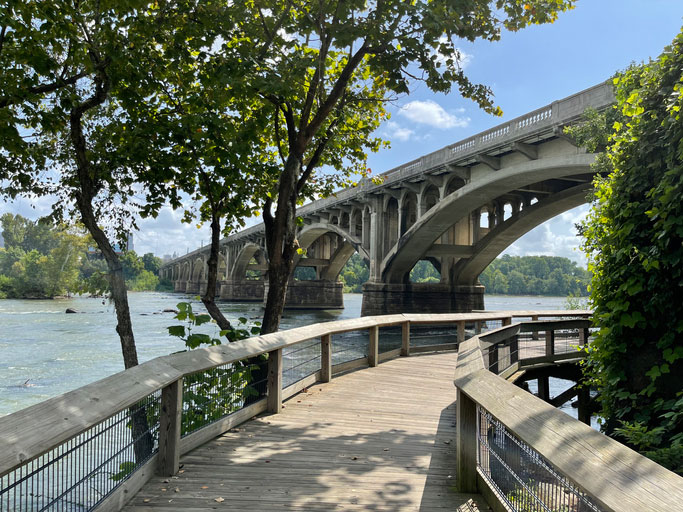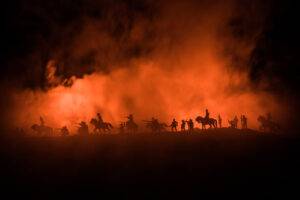Written by Jennifer Williams

You’ve probably realized by now that coming into your own as a writer doesn’t happen by following a set of structured guidelines like some other professions. There’s no conventional blueprint that’s going to lead you to the right publisher and get you locked into a fabulous book deal. Career writing is simply not that prescriptive. You’ll have to put in a lot of prep work first. Writing is an art of introspection – a craft of reflection and deliberation. The best stories are those that reach the reader in a personal way. When the reader can insert into the story, feel what the characters feel and make that personal connection, the mark of a good writer is borne. Think about it – could Conroy have so eloquently contrasted the beauty of South Carolina’s Lowcountry with the darkness of family tragedy if he, himself, did not have some personal understanding of it?
South Carolina is a place of firsts – the first state to secede from the Union and the first state to elect a write-in candidate for U.S. Senate. South Carolinians don’t mind pushing against the grain to chart their own course, and the writers it’s turned out are certainly no exception.
The Literary Legacy of South Carolina Spans Generations
 Mary Chesnut, a well-to-do South Carolina socialite, produced one of the greatest literary works of her time. She came to be known as the Civil War’s most comprehensive narrator, though it’s likely that she never expected to be remembered this way. Mary came from privilege; she was the daughter of an aristocratic, slave-owning family and the wife of a South Carolina senator. When the Civil War broke out, her husband enlisted in the Confederate Army and served as a general. He traveled throughout South Carolina and Virginia, and Mary tagged along with him. She recorded in her diary her war-time experiences and her observations of the slaves around her. Her series of diary entries later turned into the famous publication, Mary Chesnut’s Civil War. Nearly a century after her death, Mary’s book won the Pulitzer Prize in History for its intimate portrayal of the social and political upheaval in the antebellum south during one of our nation’s most decisive moments.
Mary Chesnut, a well-to-do South Carolina socialite, produced one of the greatest literary works of her time. She came to be known as the Civil War’s most comprehensive narrator, though it’s likely that she never expected to be remembered this way. Mary came from privilege; she was the daughter of an aristocratic, slave-owning family and the wife of a South Carolina senator. When the Civil War broke out, her husband enlisted in the Confederate Army and served as a general. He traveled throughout South Carolina and Virginia, and Mary tagged along with him. She recorded in her diary her war-time experiences and her observations of the slaves around her. Her series of diary entries later turned into the famous publication, Mary Chesnut’s Civil War. Nearly a century after her death, Mary’s book won the Pulitzer Prize in History for its intimate portrayal of the social and political upheaval in the antebellum south during one of our nation’s most decisive moments.
Pat Conroy, another writing giant, spent most of his life in South Carolina. He grew up a Marine’s son and moved from place to place. He didn’t have a permanent home until his family came to Beaufort when he was 15. His father maintained a home of military-style discipline and regularly meted out physical punishment to both Conroy and his mother. Conroy, despite the abuse he endured, stated that he never really felt at home until he came to Beaufort. Even at that young age, South Carolina’s history made an impression upon him. He took the anguish of his tortured childhood and combined it with the scenic serenity of the Lowcountry and ended up creating some of the most memorable literary works of all time, including The Prince of Tides and The Great Santini.
Even Edgar Allen Poe, though he was born in Boston, managed to leave his mark on South Carolina. In 1827, he enlisted in the U.S. Army and spent a year at Fort Moultrie on Sullivan’s Island, just across the harbor from Charleston. Two decades later, he wrote a short story called “The Gold Bug”, the setting of which was inspired by his time on Sullivan’s Island. He submitted his short to the Philadelphia Dollar Newspaper’s writing contest and won the grand prize of $100. Today, the pulse of Poe’s gothic writing still beats nationwide, but South Carolinians feel a more direct connection. This feeling of kinship is affirmed in the naming of the Edgar Allen Poe Sullivan’s Island Library at Battery Gadsden.
No matter what your literary talent is – whether it’s a knack for bizarre and creepy shorts, intimate journaling, or contemporary fiction – the writings of the literary greats before you are a reminder that a successful career in creative writing is within reach.
If you’re interested in becoming a writer in South Carolina, you’ll need to spend some time networking and making connections in your local writing community. Large cities like Charleston, Columbia, and Spartanburg are huge literary hubs and ripe with opportunity for new writers. In the end, though, the key to becoming a professional writer is having a degree in creative writing. Whether it’s an English degree in creative writing or an esteemed BFA (Bachelor of Fine Arts) or MFA (Master of Fine Arts), you’ll find it online or right here in South Carolina.
South Carolina’s Creative Writing Classes, Courses, and Workshops Can Prepare You for a Creative Writing Degree
Developing yourself as a writer, then, is tied to your own self-discovery. You’ll need to find an outlet where you can unravel your mind and challenge your thoughts. You can do this by getting involved with your local writing community and connecting with other writers.
The Hub City Writer’s Project is a resource you don’t want to miss. The group is a wealth of opportunity for up-and-coming writers. It sponsors writing workshops, self-publishing bootcamps, and literary lectures. The group also owns the independent Hub City Bookshop in Spartanburg, which carries selections published through its independent press. The South Carolina Writer’s Association (SCWA) is supportive of writers of all genres and sponsors various events, such as open mic nights, writing workshops, and an annual writing conference. It even has its own publication that members can submit to and get published.
If you’re into poetry, you’ll want to check out the Poetry Society of South Carolina (PSSC). The group has locations in Charleston and Columbia, but you can access everything online as well. The PSSC hosts writer’s groups, workshops, seminars, and lectures. It also sponsors poetry writing contests, the grand prize of which is publication, and has published some of the most memorable poets of all time, including Robert Frost.
Don’t forget to check out your local literary circulars, too. Crazyhorse is a literary publication of fiction, non-fiction, and poetry. It publishes twice a month and takes submissions from experienced and amateur writers alike. You can also submit to the journal’s yearly writing contest and win some serious money – $2,000 plus publication for top winners in short stories, essays, and poems. Another print journal always looking for new talent is The South Carolina Review. It takes submissions from amateur and experienced writers and pays $250 for top poetry and fiction submissions.
Writing Colleges in South Carolina Offering Bachelor’s and Master’s Degrees in Creative Writing Provide a Path to Becoming a Writer
Ultimately, it’s that college degree in creative writing that brings together your experience, passion, and talent. It is the single difference between a life of amateur writing and professional writing.
Bachelor of Fine Arts (BFA) and Other Bachelor’s Degrees in Creative Writing in South Carolina
Anderson University
COLLEGE OF ARTS AND SCIENCES
Accreditation: SACSCOC
Degree: Bachelor – BA
Private School

- English-Creative Writing
Bob Jones University
COLLEGE OF ARTS AND SCIENCES
Accreditation: SACSCOC
Degree: Bachelor – BA
Private School

- English-Creative Writing
Coastal Carolina University
EDWARDS COLLEGE OF HUMANITIES AND FINE ARTS
Accreditation: SACSCOC
Degree: Bachelor – BA
Public School

- English-Creative Writing concentration
College of Charleston
SCHOOL OF HUMANITIES AND SOCIAL SCIENCES
Accreditation: SACSCOC
Degree: Bachelor – BA
Public School

- English-Creative Writing concentration
Converse University
HUMANITIES, SCIENCES AND BUSINESS
Accreditation: SACSCOC
Degree: Bachelor – BFA, BA
Private School

- BFA - Creative and Professional Writing
- BA - English-Creative Writing concentration
Limestone University
COLLEGE OF LIBERAL ARTS AND SCIENCES
Accreditation: SACSCOC
Degree: Bachelor – BA
Private School

- English-Creative Writing concentration
University of South Carolina-Columbia
COLLEGE OF ARTS AND SCIENCES
Accreditation: SACSCOC
Degree: Bachelor – BA
Public School

- English-Creative Writing concentration
Wofford College
DEPARTMENT OF ENGLISH
Accreditation: SACSCOC
Degree: Bachelor – BA
Private School

- English-Creative Writing concentration
Master of Fine Arts (MFA) and Other Master’s Degrees in Creative Writing in South Carolina
Coastal Carolina University
EDWARDS COLLEGE OF HUMANITIES AND FINE ARTS
Accreditation: SACSCOC
Degree: Master – MA
Public School

- Writing
College of Charleston
SCHOOL OF HUMANITIES AND SOCIAL SCIENCES
Accreditation: SACSCOC
Degree: Master – MFA
Public School

- Creative Writing (Studio, Arts and Cultural Management)
Converse University
SCHOOL OF EDUCATION AND GRADUATE STUDIES
Accreditation: SACSCOC
Degree: Master – MFA
Private School

- Creative Writing (Poetry, Fiction, Young Adult Fiction, Creative Nonfiction, Environmental Writing)
University of South Carolina-Columbia
COLLEGE OF ARTS AND SCIENCES
Accreditation: SACSCOC
Degree: Master – MFA
Public School

- Creative Writing




